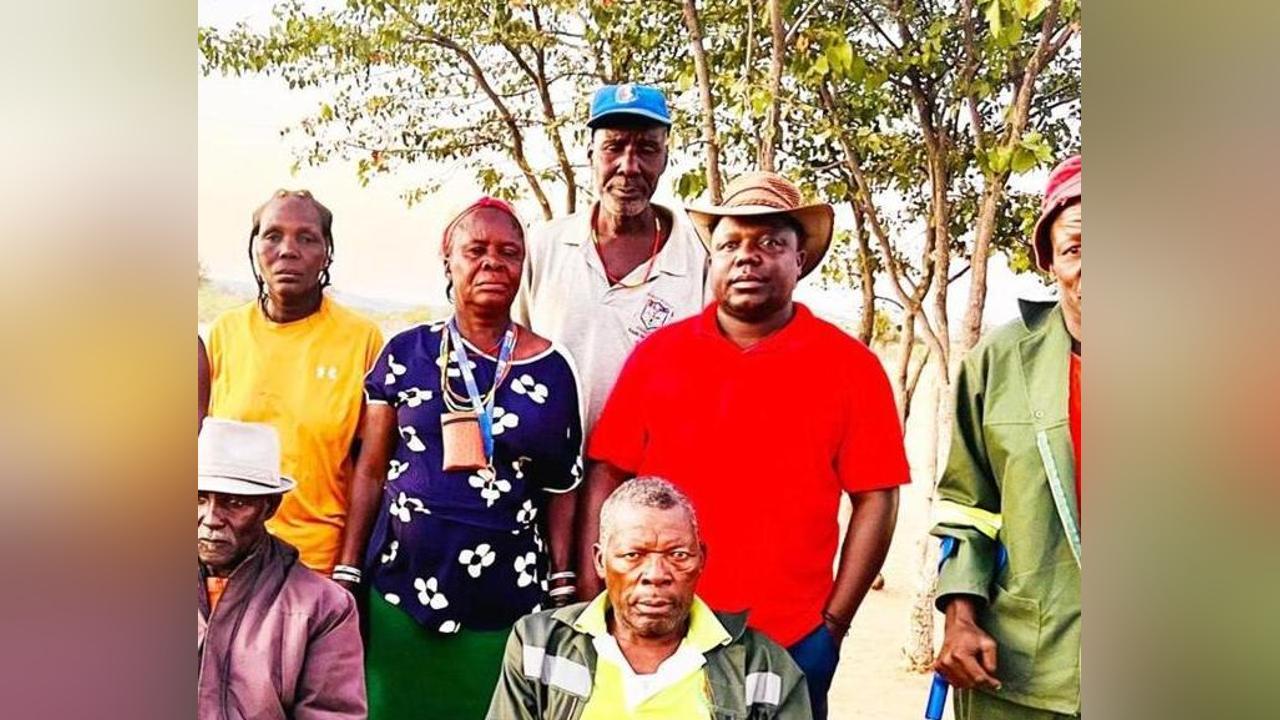Africa-Press – Namibia. Residents of the Kunene region, especially those living on communal farms bordering the Erongo and Kunene regions, said they live in fear due to elephants that
frequently invade their homesteads in search of water and grazing.
The elephants have been destroying kraals, water tanks and gardens, while also driving goats away from homesteads. Farmers claim that the animals become aggressive when they do not find water, making life unbearable and unsafe for their families.
One farmer Paulus Hango, who farms with pigs and chickens, told New Era that elephants have turned daily life into a constant battle.
He added that they have even stopped gardening, as it attracts the animals.
“Right now, every farm is struggling with elephant problems,” Hango said. He stated that even when farmers try to fix the damage, the elephants return and cause more destruction. “The farmers bought a new pump, but every time the elephants smell water, they come, get aggressive and destroy everything again. Usually, farmers wait for the government to repair or replace what was damaged, but they wait too long. So, they end up spending their own money,” he said.
“We want the elephants to be removed from the conservancy area so that we can move around and farm freely,” he requested.
Another farmer, Erwin Uirab, said they have reported the matter to the conservancy office, the Ministry of Environment, Forestry and Tourism, and Elephant Human Relations Aid (EHRA), but no concrete action has been taken. “The problem is these elephants roaming in the conservancy area every day. They move from farm to farm, pulling out pipes, destroying tanks and breaking kraals,” he said.
“As farmers, we are tired. We have reported this to the conservancy office, the ministry and even EHRA, but we are not getting help. That is why we are speaking out so that the ministry can intervene and either remove the elephants or make proper plans for them,” he stated.
He said the situation has left farmers hopeless. “In the past, we depended on our gardens for food, but now, because food prices are very high, we have to grow backyard gardens. It is painful and discouraging when elephants destroy everything after you put in so much effort. Just last week at Bolfa, the garden was destroyed, goats were chased out, and the farmers had to run around at night to gather their livestock,” Uirab added.
Omireko village
At Omireko village in the Opuwo Urban constituency, residents say they are on the brink of hunger after elephants destroyed their crops and homes, leaving them with nothing to eat.
The villagers are now pleading with the Office of the Prime Minister to urgently reinstate the drought relief food programme, which was suspended in July this year.
They argue that, despite good rains for the first time in years, they remain empty-handed because elephants trampled their fields before they could harvest. “God blessed us with rain this year, something we have prayed for after years of drought. We worked hard and expected a bumper harvest, but the elephants destroyed everything,” said the headman, Immanuel Tjipito, on behalf of his people.
More than 20 residents gathered to share their ordeal. They said they have had sleepless nights, as elephants, moving in groups of up to 30, roamed freely in their village, tearing through homes and fields.
The villagers described terrifying nights when elephants, often moving in large groups of 20 to 30, entered their fields and even broke into homes.
Destruction
One villager, Ngunaihe Ueutjerevi, said he had to rush to Opuwo to report the destruction after seven houses were damaged in a single night. Among the victims was a visually impaired man, who lived alone and was left traumatised when elephants stormed into his home.
“It was terrible. These animals are not only destroying food but also endangering lives,” Ueutjerevi said. The community said they reported the matter to the Opuwo Urban councillor Ueutjerevi Ngunaihe, who responded immediately by visiting Omireko to assess the situation. “That action gave us hope,” Tjipito said.
“We were grateful to have a leader who came to see with his own eyes. He walked from house to house, calling the nature conservancy for help,” he added. However, residents said the local conservancy could not attend to the problem because they had no fuel for their vehicle. They only arrived days later when most of the fields had already been destroyed.
Now, the community is begging the government to extend the drought relief food programme, saying they will not survive otherwise. “All we are asking is for the government to consider us. We did not harvest anything because of elephants. We are starving,” said one villager. The residents also raised another long-standing concern – compensation. They said that even though elephants destroyed their fields as far back as April, the Ministry of Environment, Forestry and Tourism has not paid them anything.
“We have been waiting for months. Nothing has come. The little food we had from the councillor’s office is finished. We do not know how we will survive,” another villager stated.
Ngunaihe confirmed the reports of conflict between people and elephants in the area.
He admitted that the conservancy’s delay worsens the situation.
“I even used money from my own pocket so that the conservancy could get fuel and attend to the complaints. But they still delayed. By the time they went to Omireko, the damage was already done,” the councillor said.
He warned that the community could face starvation if government does not act quickly.
“These people did not harvest anything. If the drought relief is not extended, people here could die of hunger,” he said.
“It is disappointing and frightening to see citizens left alone in such a crisis,” he added.
The councillor called on government to urgently look into food assistance and long-term solutions to reduce human-wildlife conflict in the region.
For More News And Analysis About Namibia Follow Africa-Press






